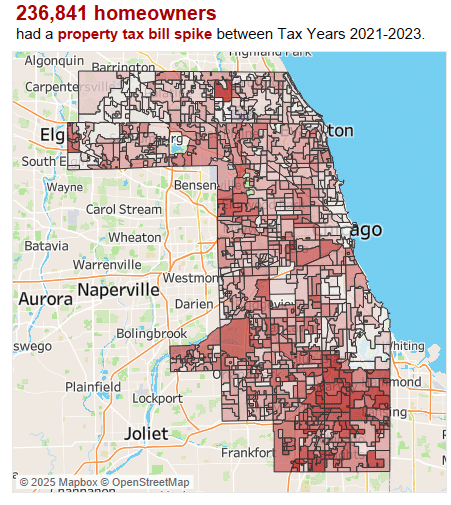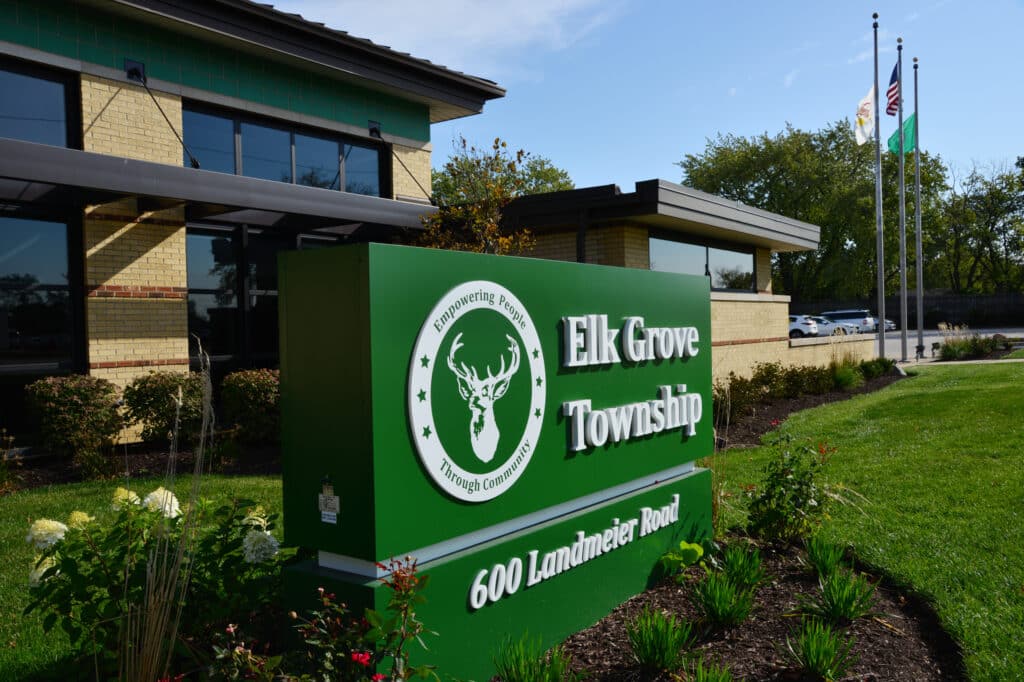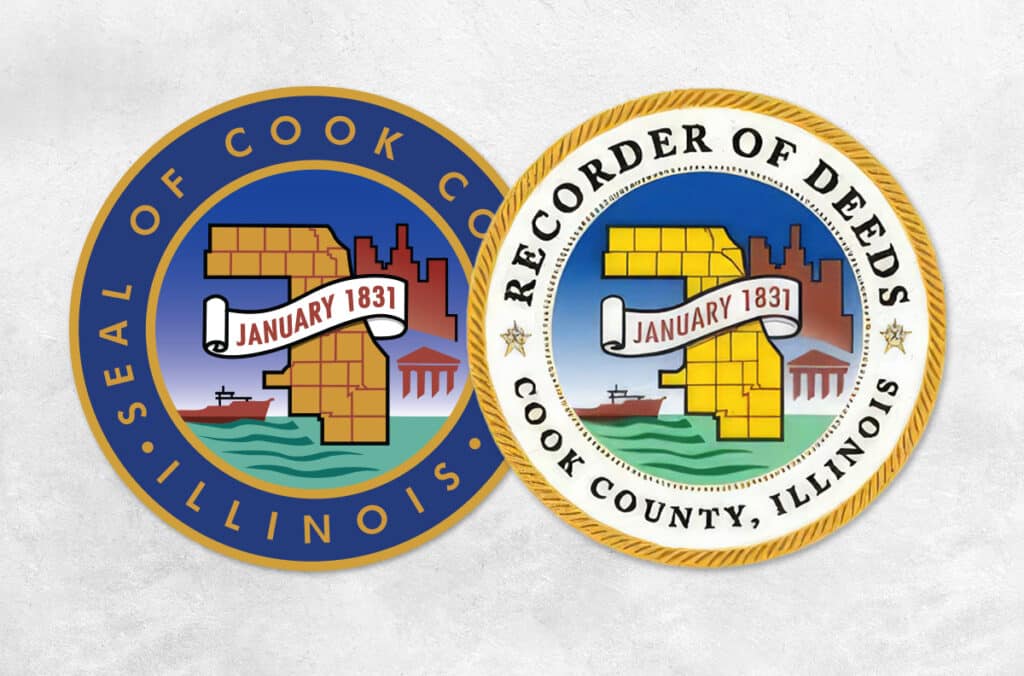Property Tax Bills Have Spiked for 240,000 Cook County Homeowners, Data Shows
The typical homeowner with a spike saw their tax bill go up by $1,700. In total, these 240,000 homeowners paid close to $500 million more in property taxes as a result of the increases. The data is available at www.cookcountyassessor.com/historical-analysis-property-tax-spikes- 2021-2023. “This data quantifies what so many families have already experienced: being suddenly saddled with much larger tax bills. Homeowners budget responsibly based on predicted increases, but the larger property tax system doesn’t provide predictability,” said Cook County Assessor Fritz Kaegi. “We need property tax relief that will serve as a crucial safeguard for homeowners in this untenable situation, protecting them from unsustainable tax spikes.” The CCAO’s new data dashboard is a historical analysis of property tax bill spikes between Tax Year 2021 and Tax Year 2023. It includes data from tax bills mailed out in the summer of 2024, when the typical homeowner in Cook County’s south and west suburbs saw a tax bill increase of nearly 20%. The dashboard also shows tax bill spikes by different geographies, including Cook County townships, municipalities, state legislative districts, and Chicago wards. The data dashboard also allows users to adjust the three parameters that define a tax spike. These are: “Circuit Breaker” program would provide relief The Cook County Assessor’s Office has worked on state legislation to create a property tax relief initiative for homeowners. This “circuit breaker” program would provide relief to qualifying homeowners with a 25% bill spike. Credits given to homeowners would cover up to half of the tax bill increase. The Circuit Breaker Property Tax Relief Act was filed in the Illinois Senate as SB1978 by Sen. Patrick Joyce (D-40th) and in the House as HB3808 by Rep. Justin Slaughter (D-27). This week, Assessor Kaegi published an editorial piece in the Chicago Tribune, written together with Mayor Nathaniel G. Booker of Maywood and Mayor Joseph Woods of Park Forest, calling for the state legislature to pass the circuit breaker. “While it’s up to legislators to balance the many competing priorities we have, we believe that we need to start putting the details to paper at some point on a program that is a necessary safeguard for our residents,” the group wrote. “That’s how we figure out a solution to a problem that seems intractable.” South suburbs saw most property tax pain While tax spikes of at least 25% occurred across Cook County, many south suburban municipalities have seen especially high increases in their bills. In Country Club Hills, for example, more than half of homeowners have seen a tax spike of 25% or more. For these homeowners, the median tax bill increase was $2,700. In 2022, the median residential tax bill in Country Club Hills was about $5,000, according to data from the Cook County Treasurer’s Office. For homeowners with tax bill spikes in Thornton Township, which includes all or parts of Calumet City, Harvey, South Holland, and several other municipalities, they paid a total of $42.2 million more in property taxes due to these increases. That was the second-highest raw total of any township in Cook County, though Thornton Township makes up less than 1.5% of all assessed value in Cook County.
Property Tax Bills Have Spiked for 240,000 Cook County Homeowners, Data Shows Read More »





